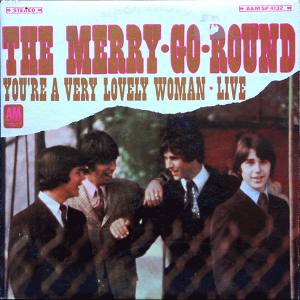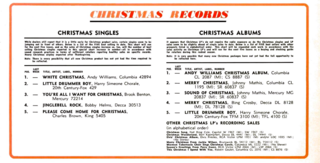Related Research Articles

"Windy" is a pop song written by Ruthann Friedman and recorded by the Association. The song reached No. 1 on the Billboard Hot 100 in July 1967, becoming the group's second U.S. No. 1 hit following "Cherish" in 1966. Billboard ranked the record as the No. 4 song for 1967.
Claudja Barry is a Jamaican-born Canadian singer. Her successful songs were "Down and Counting", "Boogie Woogie Dancin' Shoes", "Dancing Fever", and others. As an actress, she is known for appearing in the European versions of stage musicals AC/DC and Catch My Soul.

Jason Aldine Williams, known professionally as Jason Aldean, is an American country music singer. Since 2005, he has been signed to Broken Bow Records, a record label for which he has released eleven albums and 40 singles. His 2010 album, My Kinda Party, is certified quadruple-platinum by the Recording Industry Association of America (RIAA). His 2012 album Night Train is certified double-platinum, while his 2005 self-titled debut, 2007 album Relentless, 2009 album Wide Open, and 2014 album Old Boots, New Dirt are all certified platinum. Aldean has received five Grammy Award nominations throughout his career, twice for Best Country Album.
"My Heart Cries for You" is a popular song, adapted by Carl Sigman and Percy Faith from an 18th-century French melody. The song has been recorded by many singers, the most successful of which was recorded by Guy Mitchell which reached No. 2 on the Billboard chart in 1951.

"Shop Around" is a song originally recorded by the Miracles on Motown Records' Tamla subsidiary label. It was written by Miracles lead singer Smokey Robinson and Motown Records founder Berry Gordy. It became a smash hit in 1960 when originally recorded by the Miracles, reaching number one on the Billboard R&B chart, number one on the Cashbox Top 100 Pop Chart, and number two on the Billboard Hot 100 chart. It was the Miracles' first million-selling hit record, and the first-million-selling hit for the Motown Record Corporation.
"Come Softly to Me" is a popular song recorded by The Fleetwoods, composed of Gretchen Christopher, Barbara Ellis, and Gary Troxel, who also wrote it. The original title was "Come Softly", but was changed en route to its becoming a hit. Bob Reisdorf, the owner of Dolphin Records, which in 1960 changed to Dolton Records, was responsible for the title change. He thought that "Come Softly" might be too obvious and considered risqué, so he had it changed to "Come Softly to Me." The title phrase never appears in the song's lyrics.

Once Upon a Christmas is a collaborative studio album by Kenny Rogers and Dolly Parton. It was released on October 29, 1984, by RCA Records. The album was produced by Rogers with David Foster. It was Rogers' second Christmas album, following 1981's Christmas, and Parton's first. The album's release was accompanied by a CBS television special, Kenny & Dolly: A Christmas to Remember. The album was certified 2× Platinum by the RIAA in 1989.

"Until You Come Back to Me (That's What I'm Gonna Do)" is a song written by Morris Broadnax, Clarence Paul, and Stevie Wonder. The song was originally recorded by Stevie Wonder in 1967, but his version was not released as a single and did not appear on an album until 1977's anthology Looking Back. The best-known version of this song is the 1973 release by Aretha Franklin, who had a million-selling top 10 hit on Billboard charts. The song reached No. 1 on the R&B chart and No. 3 on the Hot 100 chart in 1974. It became an RIAA Gold record.
Wes Farrell was an American musician, songwriter and record producer, who was most active in the 1960s and 1970s.

"You Light Up My Life" is a ballad written by Joseph Brooks, and originally recorded by Kasey Cisyk for the soundtrack album to the 1977 film of the same title. The song was lip synced in the film by its lead actress, Didi Conn. The best-known cover version of the song is a cover by Debby Boone, the daughter of singer Pat Boone. It held the No. 1 position on the Billboard Hot 100 chart for ten consecutive weeks in 1977 and topped Record World magazine's Top 100 Singles Chart for a record 13 weeks.
"Love Will Keep Us Together" is a song written by Neil Sedaka and Howard Greenfield. It was first recorded by Sedaka in 1973. The brother-sister duo Mac and Katie Kissoon recorded their version in 1973. American pop duo Captain & Tennille covered it in 1975, with instrumental backing almost entirely by “Captain” Daryl Dragon, with the exception of drums played by Hal Blaine; their version became a worldwide hit.

Every Mother's Son was an American sunshine pop band formed in New York City in 1966. Coming from a folk rock background situated in Greenwich Village, the group scored their only Top 40 hit "Come On Down to My Boat" in 1967. Following their brief commercial success, Every Mother's Son achieved lesser fortunes with songs such as "Put Your Mind at Ease" and "Pony with the Golden Mane", and recorded two studio albums before disbanding in 1968.
"One Monkey Don't Stop No Show" is the title of several different songs, mostly in the R&B genre, deriving from a common African-American phrase with the general meaning of "one setback should not impede progress". The first known recording with this title was by Stick McGhee and His Buddies in 1950. Commercially successful songs with this title were recorded by Joe Tex (1965), Honey Cone (1971) and Little David Wilkins (1975).
"It Keeps Right On a-Hurtin'" is a song written and recorded by Johnny Tillotson, which was a major hit for him in 1962. It has been recorded by many other artists.
Labinot Gashi, known mononymously as Gashi, is an American rapper, singer and songwriter.

Graham Hamilton Lyle is a Scottish singer-songwriter, guitarist and producer.

"I'm Gonna Tear Your Playhouse Down" is a song written by Memphis-based songwriter Earl Randle, and first recorded in 1972 by soul singer Ann Peebles. The song was also a hit in 1984 for English singer Paul Young.

Every Mother's Son is the debut album by American band Every Mother's Son, released in 1967 on MGM Records. It blended both sunshine pop and folk rock influences. The album was preceded by the single, "Come On Down to My Boat".

The Merry-Go-Round is the only album by 1960s pop group the Merry-Go-Round. It was released in the United States in November 1967 and reached No. 190 on the Billboard Top LPs chart.

Billboard magazine only charted Christmas singles and albums along with the other popular non-holiday records until the 1958 holiday season when they published their first section that surveys only Christmas music.
References
- ↑ "Come On Down to My Boat (song by Every Mother's Son) • Music VF, US & UK hits charts". Musicvf.com. Retrieved 2016-09-29.
- ↑ "Every Mothers' Son - Every Mothers' Son (Vinyl, LP, Album)". Discogs.com. 1967. Retrieved 2016-09-29.
- ↑ "The Rare Breed - Come And Take A Ride In My Boat / Take Me To This World Of Yours - Attack [NYC] - USA - AR 1403". 45cat.com. Retrieved 2016-09-29.
- ↑ "Every Mothers' Son - Come On Down To My Boat / I Believe In You - MGM - USA - K 13733". 45cat.com. Retrieved 2016-09-29.
- ↑ "Billboard Top 100 - 1967 - Longbored Surfer - Charts". Archived from the original on 2014-01-02. Retrieved 2014-02-07.